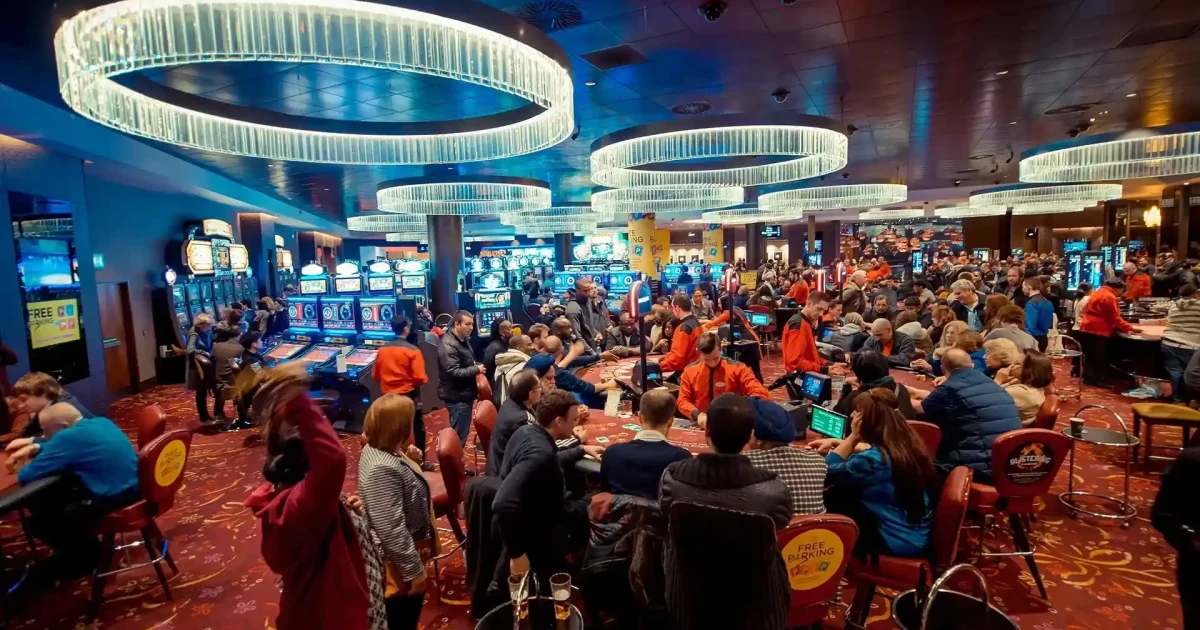
Casino entertainment have long been an integral part of human culture, offering not just entertainment but a intriguing reflection of our hopes, ambitions, and fears. From the turning reels of a slot machine to the skill-based strategies of poker, these games embody a range of human sentiments and experiences. At their core, casino games are not just a chance to make profits; they are a snapshot of life itself, where risk and reward intertwine and luck can change in an instant.
As players convene around tables or sit in front of vibrantly illuminated machines, they participate in a ritual that transcends mere betting. These games reflect our innate desires for connection, excitement, and the quest for chance. They also disclose deeper truths about human behavior, such as our relationship with chance and the thrill of the unknown. In exploring casino games, we uncover not only the rules of play but also the intricate pattern of the human experience, showcasing our woven narratives of hope and reality.
The Psychology of Gambling
Wagering is deeply rooted in the psyche of individuals, tapping into various feelings and wants. The thrill of taking risks is a core aspect that attracts participants, whether it’s excitement of spinning a roulette or the anticipation of drawing a winning card in poker. This rush of adrenaline is frequently likened to other forms of excitement, as the uncertainty of outcomes triggers a unique psychological response. Players often become captivated by the possibility of winning big, leading to an irresistible draw toward casino games.
Another, a crucial component of the psychology behind gambling is the concept of hope and ambition. Players often nourish fantasies of financial freedom and the opulent lifestyle that can follow winning. This hope fuels their continued participation in gambling, as it provides a sense of purpose and the conviction that a life-changing win could be just one bet away. The story of overcoming odds and finding success resonates with many, reinforcing their dedication to play and engage with these games.
Lastly, social aspects play a significant role in gambling psychology. Casino environments are designed to promote social interaction, where gamblers gather to share the experience of wins and losses. This communal aspect not only enhances enjoyment but also influences behavior, as individuals often imitate the actions of others around them. The collective approval found in mutual thrill can enhance the emotional experience, making casino games a mirror of not just personal desires but also shared involvement within the gaming community.
## The Dual Nature of Risk and Reward
Gambling games embody the delicate balance between danger and reward that resonates deeply with the human experience. The excitement of placing a bet is often accompanied by a rush of adrenaline, as participants are confronted with the chance of winning big, yet cognizant of the possibility to suffer losses. This bipartisan experience reflects a core aspect of life: the decisions we face often come with inherent risks, and the quest for benefit can drive us to take chances we might not normally consider. In this way, gambling activities reflect real-world choices, enticing players to gamble not just their money, but also their dreams.
The allure of jackpot prizes and winnings fuels a feeling of positivity, inspiring gamblers to imagine a better future that could arise from a lucky spin of the roulette or flip of a card. This hope can compel individuals to engage in greater risks, encouraging them to extend their limits in search of monetary success. However, just as in life, the outcomes of these risks can lead to both triumph and failure. The narratives of both big winners and those who have faced losses everything at the tables demonstrate the random nature of luck and its significant repercussions on our lives.
Ultimately, the experience of engaging with gambling activities serves as a vivid illustration of the human condition. Every game played is loaded with the tension of ambiguity, as players weigh the rewards against the risks. This balance not only highlights the excitement that comes with gambling but also unveils the risks that come with the urge for more. As we navigate the complexities of choice and consequence in both the gambling world and in life, we find that the quest for gain shapes our sense of self and journeys in deep ways.
Culture and Isolation in Gambling Environment
Gambling culture is a special combination of social interaction and personal endeavor, reflecting the contrasts of human experience. Players often come together around tables, sharing in the thrill of the game, rejoicing in wins, and sympathizing over losses. This social aspect is vital, as it fosters a sense of belonging and camaraderie among diverse groups of individuals. Regular visitors to gaming establishments may form friendships and develop routines, turning the casino into a alternative home where they feel connected to a greater community of players. ww88
However, the attraction of gambling games can also lead to isolation. As players become immersed in the excitement of playing, they may withdraw from personal connections or fail to engage with the world outside the casino. For some, the pursuit of a jackpot can overshadow genuine connections, leading to isolation. The situation of being among people yet experiencing solitary is not uncommon, as the attention shifts from collective fun to the private concerns of each player’s path.
This interplay of society and solitude creates a rich tapestry that defines gaming culture. It highlights the complexity of human interactions, where joy and despair coexist. Gambling venues serve as both a refuge for social engagement and a platform for individual challenges, demonstrating how intimately connected our desire for companionship and the individual quest for fortune can be. In navigating this environment, gamblers confront their own narratives—seeking both the rush of the wager and the companionship of fellow players, ultimately reflecting the broader spectrum of human experience.
